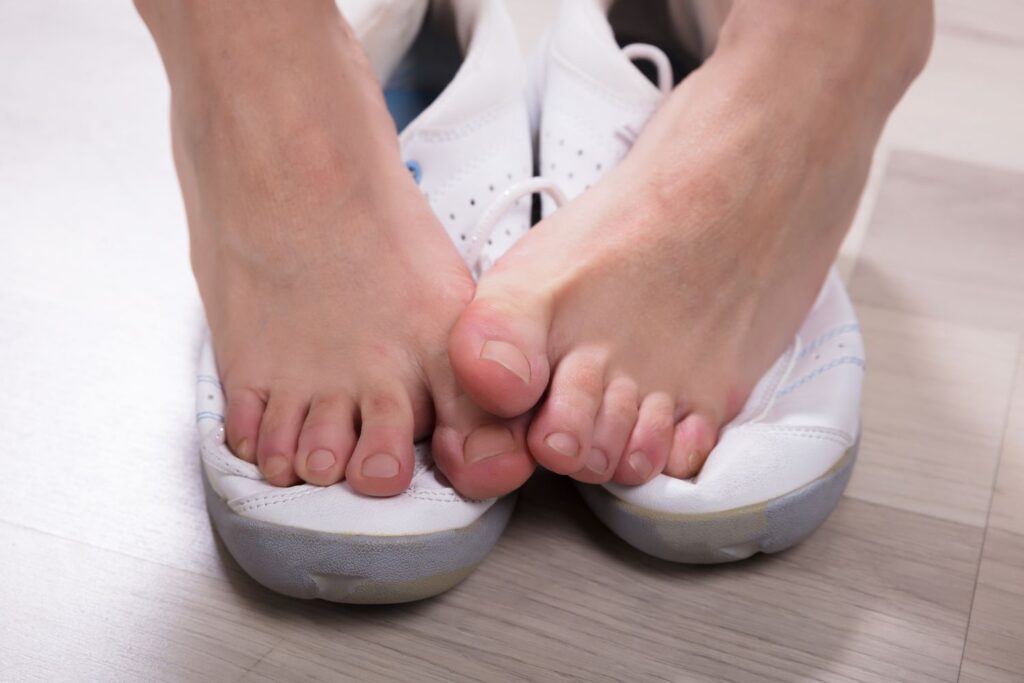Share Post
Foot odor, also known as Bromodosis, is a common condition that can affect anyone. It often results from the interaction of sweat with bacteria on the skin’s surface.
To manage and prevent foot odor, it is crucial to maintain good foot hygiene, wear breathable footwear, change socks daily, use moisture-wicking materials, and consider using antiperspirants or foot powders.

Here are some reasons:
Sweat Glands: The feet have numerous sweat glands, including eccrine and apocrine glands. Eccrine glands produce clear, odorless sweat, primarily for temperature regulation, while apocrine glands release a thicker, lipid-rich sweat. Both types of sweat provide an environment for bacterial growth due to their moisture and nutrients.
Bacterial Activity: Bacteria naturally inhabit the skin’s surface, and they break down the components of sweat as a source of nutrition. When bacteria metabolize sweat, they produce volatile organic compounds, some of which are responsible for the unpleasant odor associated with smelly feet.
Fungal Infections: Fungal infections, such as athlete’s foot (tinea pedis), can contribute to foot odor. Fungi thrive in warm, moist environments, leading to skin infections. These infections can produce an additional unpleasant odor, often in combination with bacterial activity.
Hyperhidrosis: Some individuals experience hyperhidrosis, a medical condition characterized by excessive sweating. Excessive sweat production, especially on the feet, creates an ideal environment for bacterial growth, which can result in more pronounced foot odor.
Poor Foot Hygiene: Inadequate foot hygiene, such as infrequent washing or not completely drying the feet, can allow sweat and bacteria to accumulate, exacerbating foot odor.
Footwear and Sock Materials: Shoes and socks made from non-breathable materials can trap moisture, creating a favorable environment for bacterial growth. Properly ventilated footwear and moisture-wicking socks can help mitigate this issue.
Diet: While less significant than other factors, the consumption of certain foods like garlic and onions can lead to the excretion of odorous compounds through sweat, which can contribute to foot odor.
What causes foot odor: conclusion
For many people, the issue may persist without intervention. If the foot odor is caused by an underlying medical condition, like hyperhidrosis (excessive sweating) or a fungal infection, it is less likely to go away on its own and may require treatment.
If you’ve tried self-care measures and the foot odor persists or is accompanied by other concerning symptoms, it’s advisable to consult a healthcare provider for a proper evaluation and guidance on how to address the issue effectively.
A visit to Feldman & Leavitt Foot And Ankle Specialists will CLEARLY define all available patient options.
As a general rule, procedures are performed on an outpatient basis in an Alberta Health Services (AHS) approved Surgical Center or in a Hospital. Surgical procedural costs are covered by AHS or the patient may opt for private surgery to avoid a waiting time.

